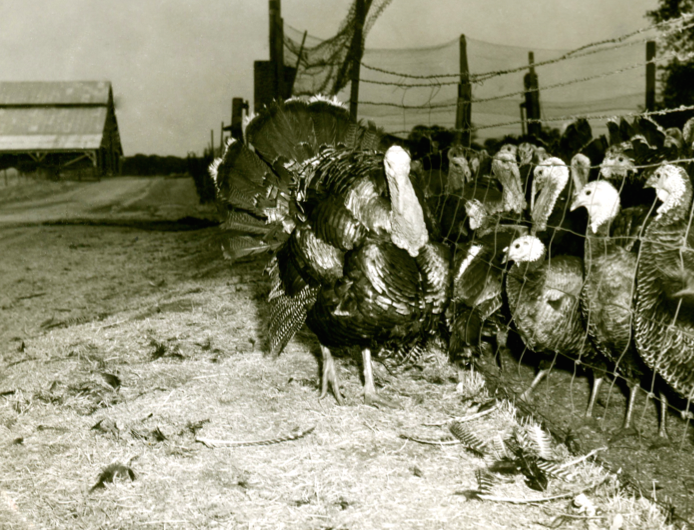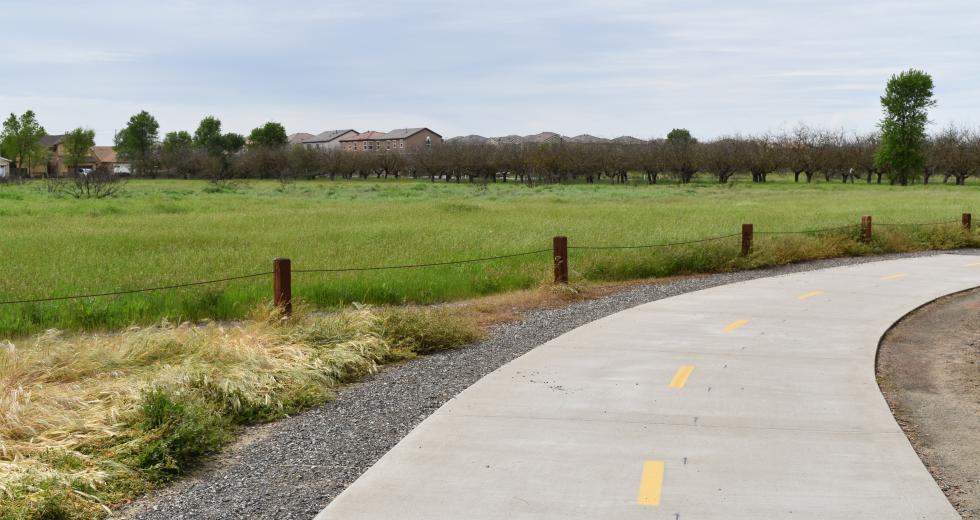Bryan Barrett knows this land well.
Before much of the land was slated for development in recent years, Barrett’s grandparents David and Dolly Fiddyment owned a ranch near what is now Blue Oaks Boulevard and Orchard View Road in West Roseville. Barrett learned how to drive a tractor on this land, how to swim in a nearby creek.
“I learned all my life lessons on that property,” Barrett says.
Now, Barrett and other members of the Rotary Club of Roseville are working to help others learn from what remains of the ranch and to create something that doesn’t currently exist in this city of about 140,000 people: a public community garden. Community gardens abound in nearby Sacramento. But, save for some scattered, private plots, there are no community gardens to be found in Roseville. This new garden would grow food for the Placer Food Bank, and any member of the public can volunteer to tend to it.
“In Roseville, if someone wants to garden, they’ll garden at home,” says Anthony Davis, youth development coordinator for Excel Roseville. Excel, a recreational center in North Roseville that serves low-income and at-risk youth, has a garden. But it’s solely for the clientele.
The same goes for the garden at Maidu Senior Apartment Complex in East Roseville, which has 20 plots all leased up for the year and is so popular that some residents split plots. “I have folks in their 70s who are out there every day doing this stuff,” says Kirsten Timbers, property manager for Project Go, which owns the complex.
It’s unclear why the popularity of community gardens hasn’t extended to the rest of Roseville, though the City took a look through park surveys in recent years. Tara Gee, park planning and development superintendent for Roseville, says survey respondents placed greater priority on athletic fields.
Turkeys on the former Fiddyment ranch where a new garden is
planned. (Photo courtesy Christina Richter)

But Gee’s open to new ideas, so for more than a year, she’s been meeting with Barrett and other Roseville Rotarians about creating a garden on the former Fiddyment land, which the City of Roseville now owns. Rotary took interest as David Fiddyment, who turns 95 on April 20, has had perfect attendance in the club for 71 years. This isn’t the first community garden Fiddyment has helped create, as he allowed use in the late ‘90s of about five acres of his land for a Sun City Roseville gardening club until a Fiddyment Road extension took the land.
The plan this time is to carve two acres from open space the City of Roseville acquired after David and Dolly sold their land to Signature Homes in the early 2000s. With volunteer help from the Placer Community Food Bank and residents of The Gathering Inn, Roseville’s nomadic homeless shelter, the garden could be a bustling mini-ranch.
“It’s not going to be cute, little raised beds,” says Deborah Fiddyment, David and Dolly’s daughter and a fellow Rotarian. “That’s not what we’re looking for. We’re looking at the volume that can go to the food bank. We’re looking at supporting people getting on their feet who’ve been homeless.”
In time, there could be another Fiddyment-related garden, too. Roseville Historical Society President Christina Richter has been in early talks with Sun City Roseville about having a community garden at the historic Fiddyment House, which dates to the 19th century and is near David and Dolly’s former land.
Deborah supports having a garden at the Fiddyment House, which has been a target for vandals since the City acquired it last year and has been considering restoring it. “If we could get people out there doing gardens, then they would have a vested interest,” Deborah says.
Hurdles remain, though, to opening Rotary’s garden. A lease agreement must be reached between the City and the Rotarians. The City would like the club to pay to install a fence, security system and signage. The cost for this is unclear.
Rotary’s continued participation is also essential. While the City of Sacramento has a full-time employee to manage its community garden program, Roseville officials, who’ve discussed possible budget cuts for over a year, seem unlikely to dedicate any staff members to running a program.
But Gee also stresses that the City will help get a volunteer-fueled program off the ground, including giving Rotary a discount to lease the land. “We’d want to be fair and equitable, whatever approach we take with our partners,” Gee says. “We want a win-win.”



